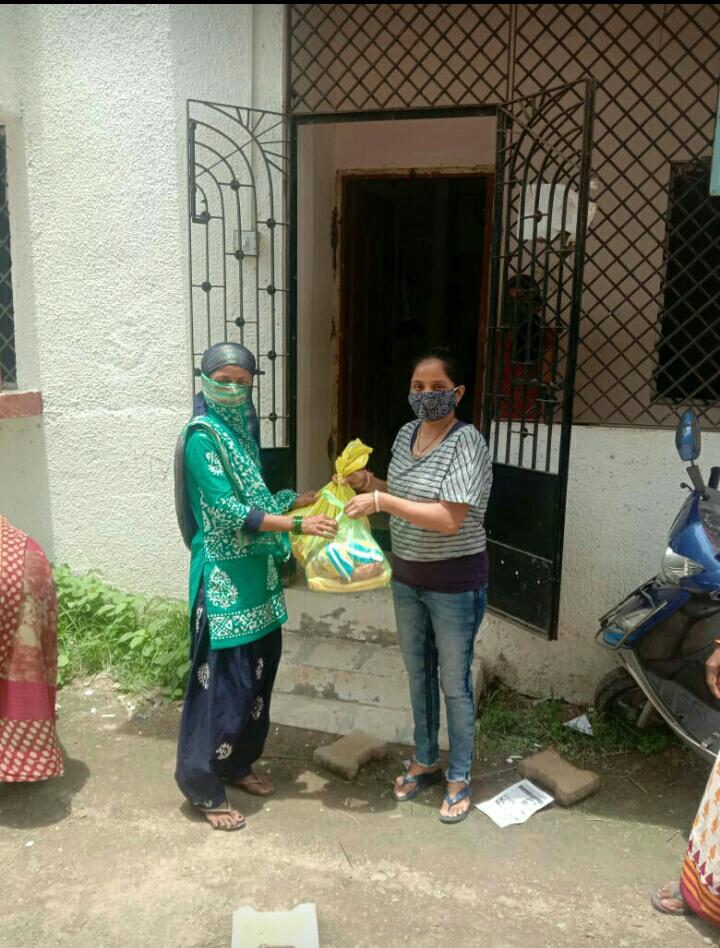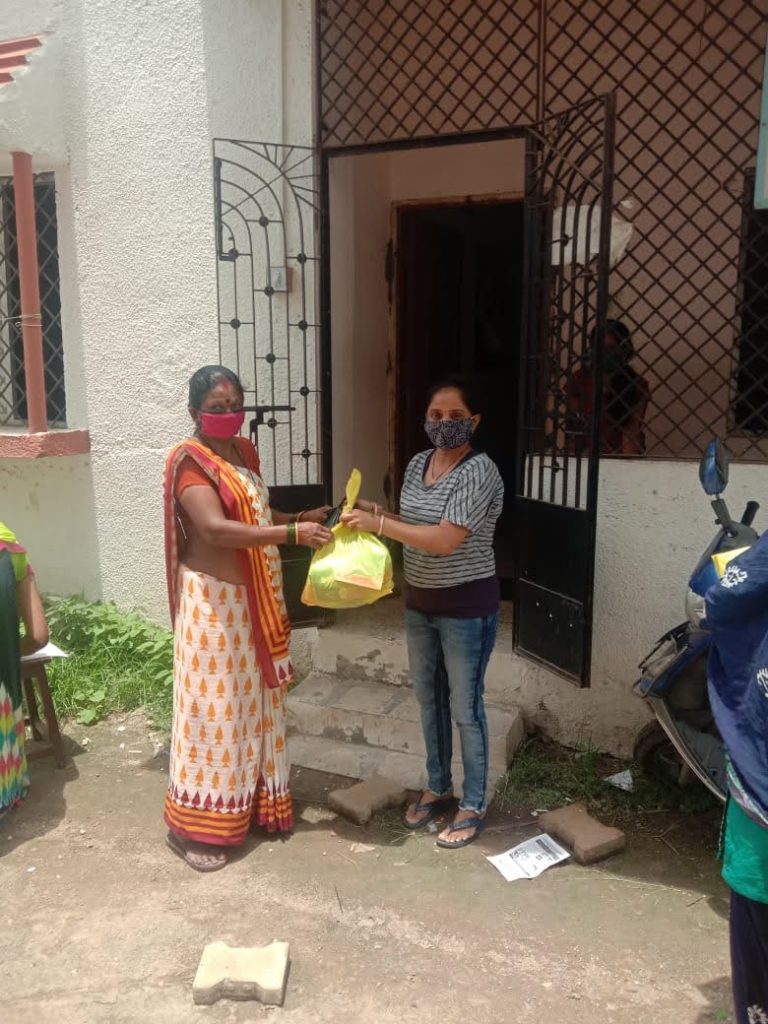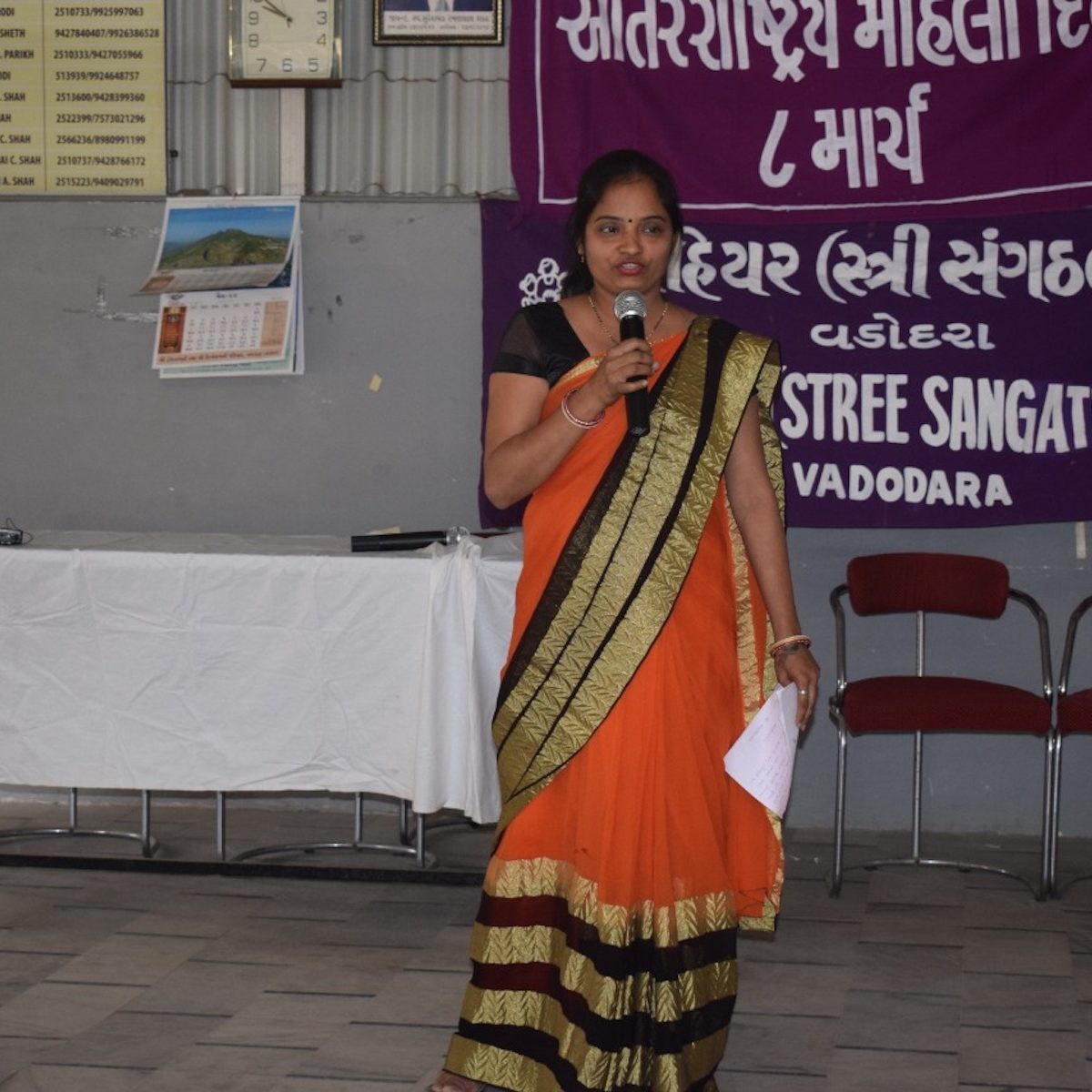
Blog
As a mentor at Sahiyar, I have been in touch with the young women through thick and thin. Because of my own experiences, I can in many ways connect with the girls and their struggles.
When She Leads: Reena
December 16, 2020
Reading Time: 8 minutesThis interview is part of our When She Leads: From the Front Lines series. Learn more.
Reena is a Youth Coordinator with our partner site Sahiyar in Gujarat. She was interviewed by Program Officer Upasana Saha.
Press play to hear Reena’s introduction.
Hi Reena. Please introduce yourself and tell us about your role and responsibilities at Sahiyar?
My name is Reena. I have been associated with Sahiyar for 14 years. I became associated with Sahiyar when I was very young. Sahiyar workers used to come to my community to do child rights activities and shared different tasks and programs. After participating with school street plays and rallies, my journey with this experience began. I was a dedicated student, and I had a lot of desire to study, but my financial condition growing up was not good. Despite not wanting to make this decision, my mother and father could not see another way. I also saw the situation at home, and so I was married.
It was difficult for me to continue with school after [grade] 10, due to economic hardship and other family pressures. Because my family wasn’t keen about me pursuing higher studies, I decided to live with my aunt. She encouraged me to look for a clerical job. But with only a 10th grade level education, it was difficult to get a good job. I ended up taking a babysitting job for a mere salary of 500 rupees ($6–7 USD). I managed taking time to continue my studies in between my work.
During those days when I met my friends, most of them were either in high school or doing some diploma or vocational course. Seeing my peers was motivating. I knew education was the only tool that could change my course in life. At that point, I got in touch with Sahiyar to see if they were offering any scholarships that I could apply for. I applied and received a scholarship, and, with that support, I was able to do a diploma course in Information Technology. Later I saved up and completed my degree in Social Work.
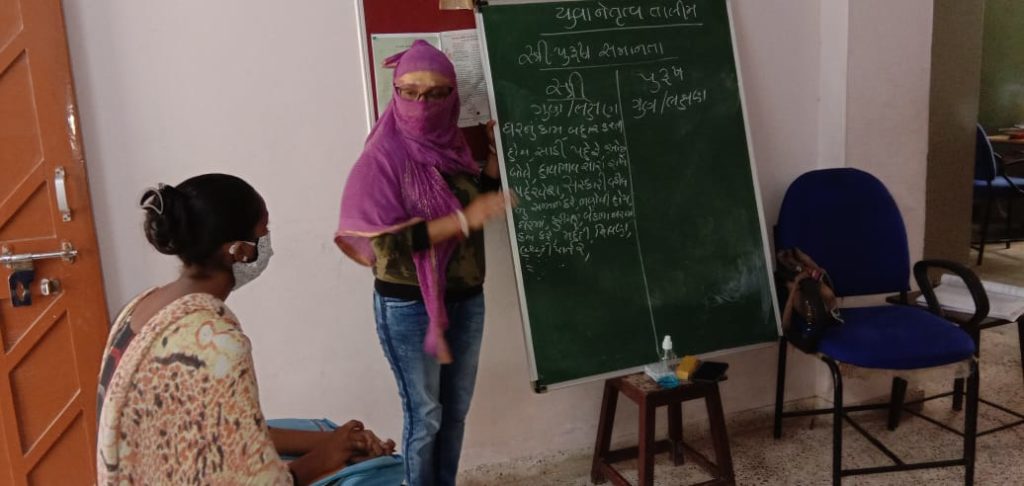
During the lockdown young women’s mobility and access to education was critically impacted. What was it like for Sahiyar’s young women leadership participants, and how were you able to support them?
As a mentor at Sahiyar, I have been in touch with the young women through thick and thin. Because of my own experiences, I can in many ways connect with the girls and their struggles. Especially during the lockdown, most girls experienced their families losing jobs. They were not able to afford travel fare to attend Sahiyar classes and the replacement online classes required high data bandwidth which is a luxury at this time of financial crunch. Also, girls have to manage finishing household chores and care-giving work before dedicating any time for their online school/college studies. Since we work with mixed groups, I have also been able to observe the challenges young boys are facing. They are being asked to support their fathers in daily wage work or to take up minimum paying jobs like newspaper selling to help pay the families bills.
During our weekly wellbeing check-ins calls with program participants, I continue reiterating the importance of education because I strongly believe it is the only tool that can help a person fulfill their dreams and aspirations. Also, our staff at Sahiyar feel strongly that adolescent mental health has taken a serious toll due to the pandemic and lockdown. WhatsApp and telephone calls are the best medium to stay connected with the participants. However, it isn’t always that simple because some participants don’t have a basic phone for their personal use and have to rely on their elder siblings or parents’ mobile phone. The lack of privacy is another emerging issue. Program participants hardly have the space to talk freely or express their emotional difficulties in a candid way.
Despite so many challenges at different levels, our participants are hopeful and resilient. In group calls, I have heard so many participants describe how they are supporting one another by sharing their stories, their self-developed solutions and strong will power with each other.
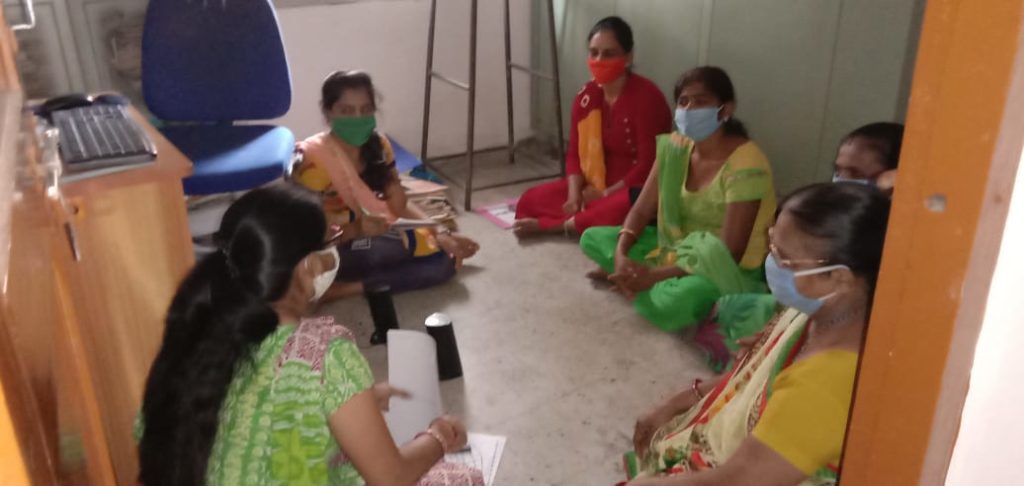
You’ve mentioned young women in Sahiyar’s programs being vocal about the change they want to see in themselves and in society. In your experience, what are some of the challenges that limit young women from exercising their leadership and agency?
Women’s decision-making power and leadership has changed over time but not completely. Within our program, we often hear their decisions are still governed by their family’s expectations. Girls have shared the burdens they carry on their shoulders are phenomenally high. They not only have to prove themselves as women who can succeed in life, they must also constantly negotiate with their family to continue with their education or the career of their choice. For example, recently a father of a young girl wanted her to study and come to Sahiyar, but only if she was promised some kind of financial benefit or job after the course completion. It is very important for Sahiyar staff to have continuous, supportive dialogues with parents and at the same time, allow the girls to improve their negotiation skills with their parents in order to exercise their autonomous agency.
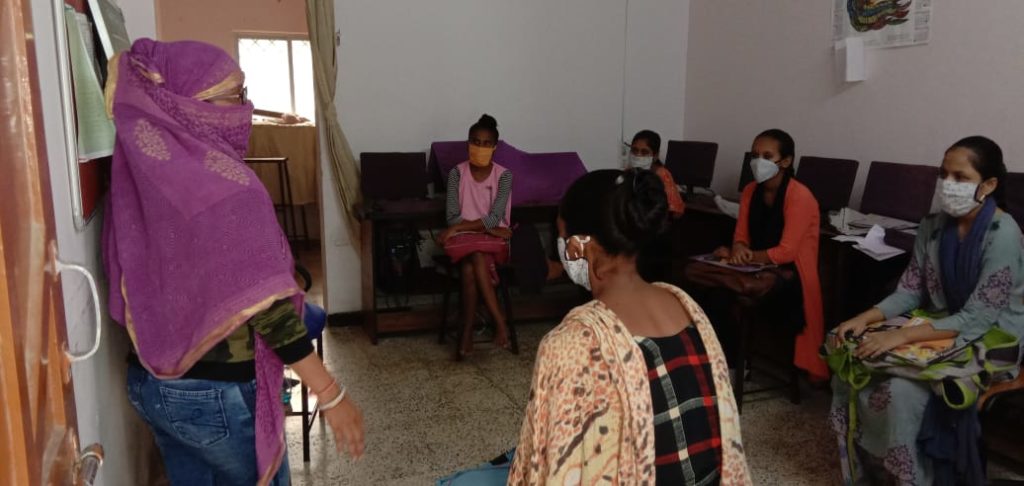
What type of engagement do you have with families of the participants?
Working with participants’ parents is extremely important for us at Sahiyar. We have periodic parents and/or mothers’ meetings to reduce the parental resistance that girls experience at times from their family members who try to challenge gender-based issues in their immediate spaces. We also work with program participants’ schools to ensure the girls who are part of the Shadhika/Sahiyar leadership program are attending regularly. The local government schools have also invited Sahiyar to speak to girls and their families to ensure girls are allowed to continue with their education beyond 8th grade.
In the long run, how do you see yourself supporting the girls at Sahiyar?
I will continue to work closely with the girls and provide them the necessary support. I love working with young people, especially women. My efforts will be to ensure girls continue to receive the maximum support from Sahiyar. I can mentor them with empathy, as I can associate myself with their realities and struggles. Personally, I also financially support girls coming from disadvantaged communities with school fees and books. This year I was able to help two girls in the neighborhood.
Throughout this unparalleled year, Shadhika has kept the integrity of our grantmaking intact to make sure the communities we serve, like Reena’s at Sahiyar, are not impacted anymore than they already have been by this global pandemic – and this was all thanks to you!
As we near year-end, we invite you to watch Executive Director My Lo Cook’s holiday message and consider how you can help Shadhika finish 2020 with the support necessary to launch renewed efforts in our fight for gender equity in India in 2021.
“To say that this is an unusual holiday season would be an understatement. Many of us have less now than we started the year with. While it’s been a year of much loss from so many of us, what we have not lost this year and what is front of mind for us at Shadhika during the season, is the power of the new year to regenerate energy, the hope to renew our commitment to gender equity in India. There is so much potential for rebirth with the start of a new year – we believe so firmly in that.“
Read more

